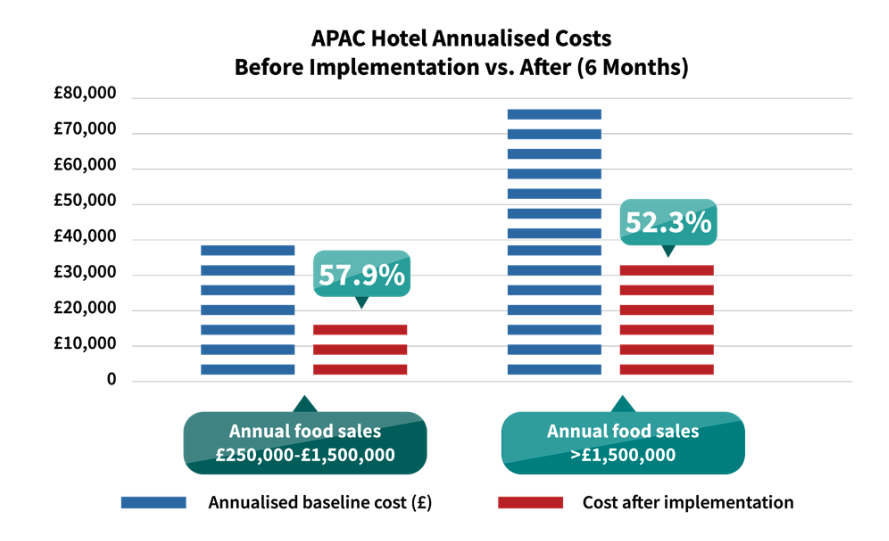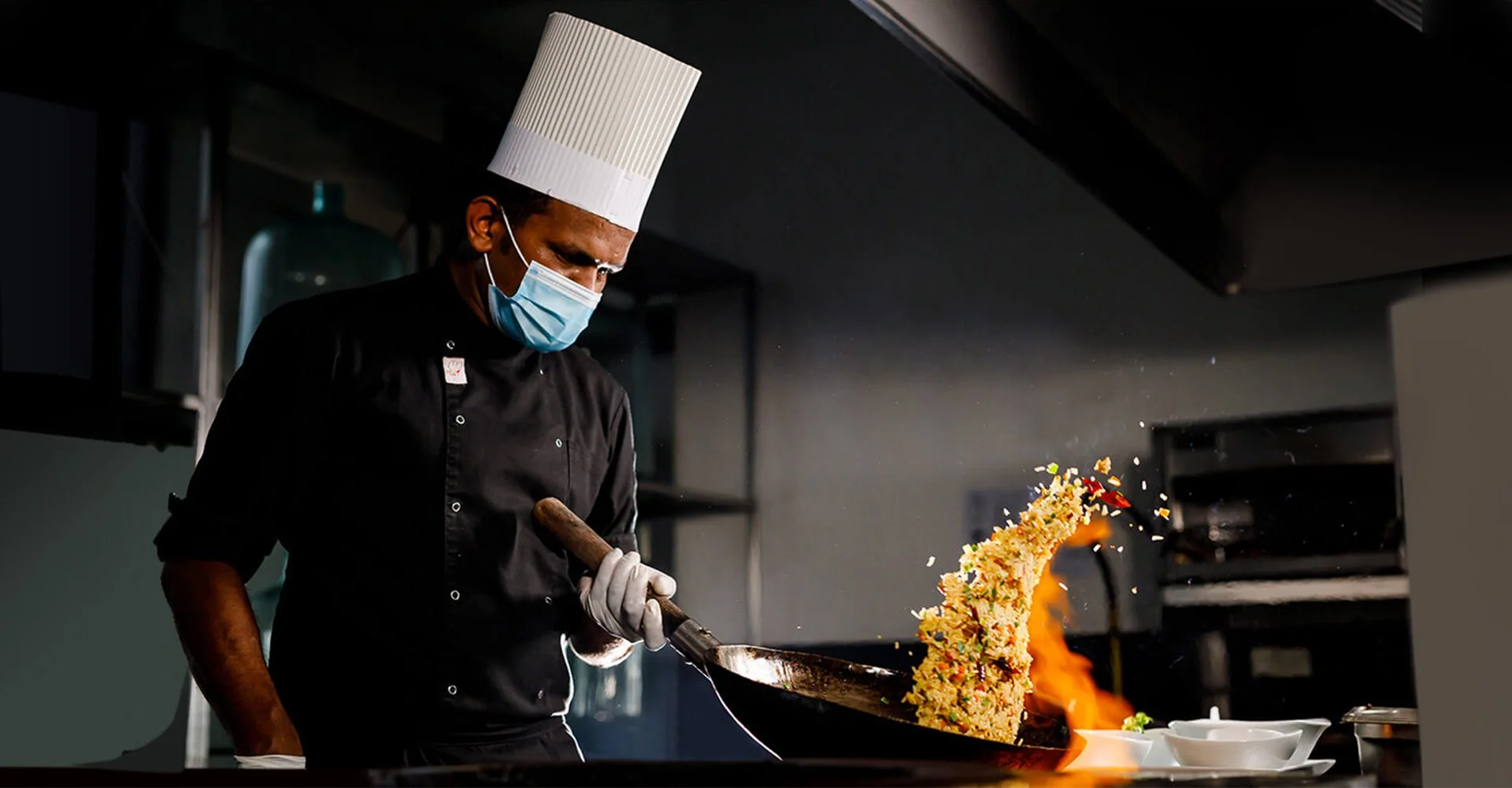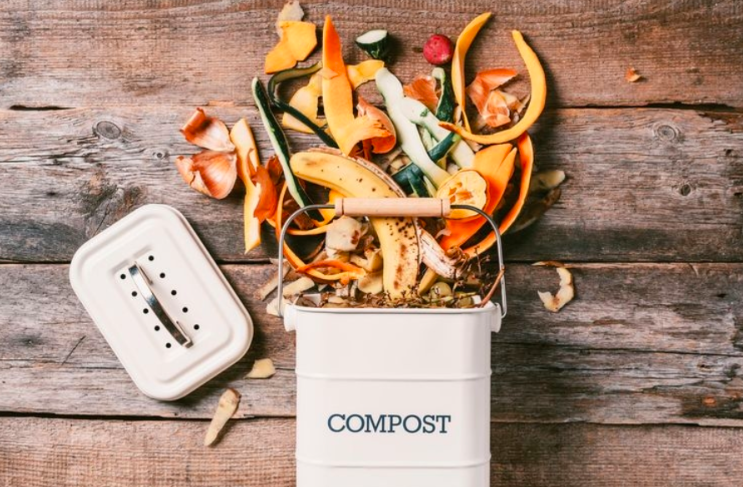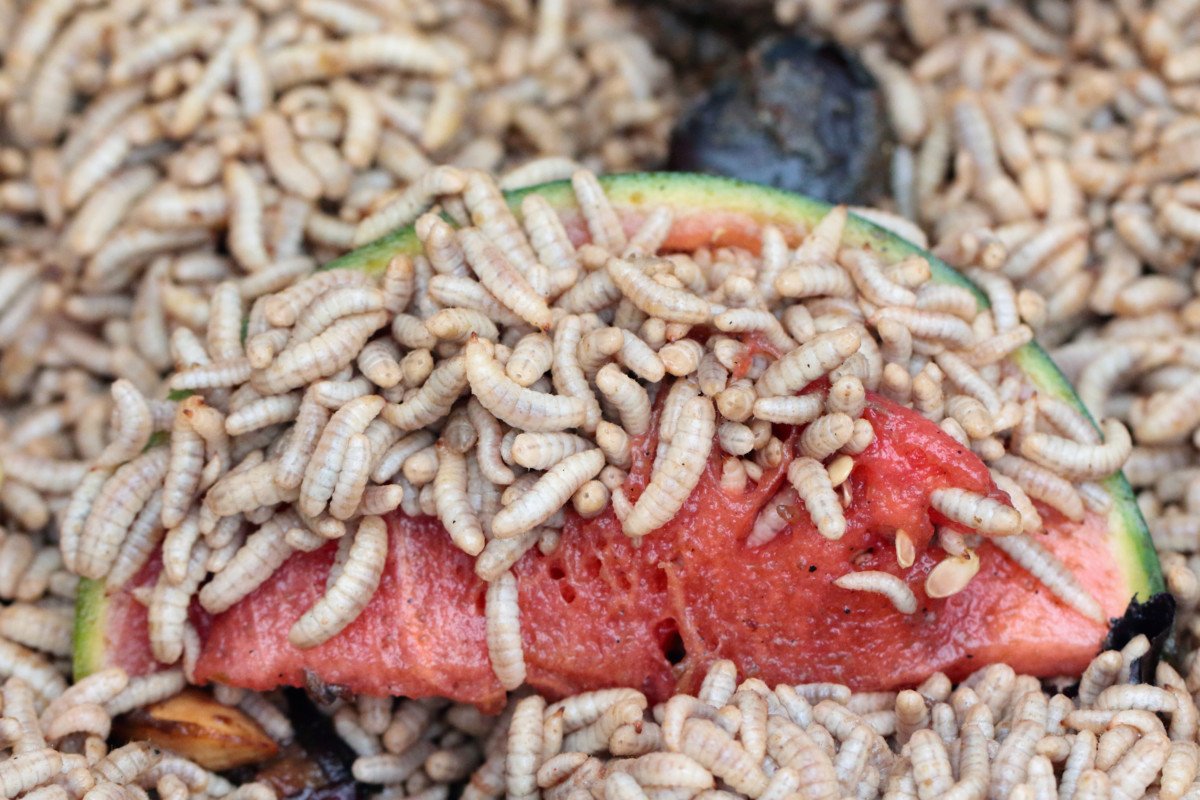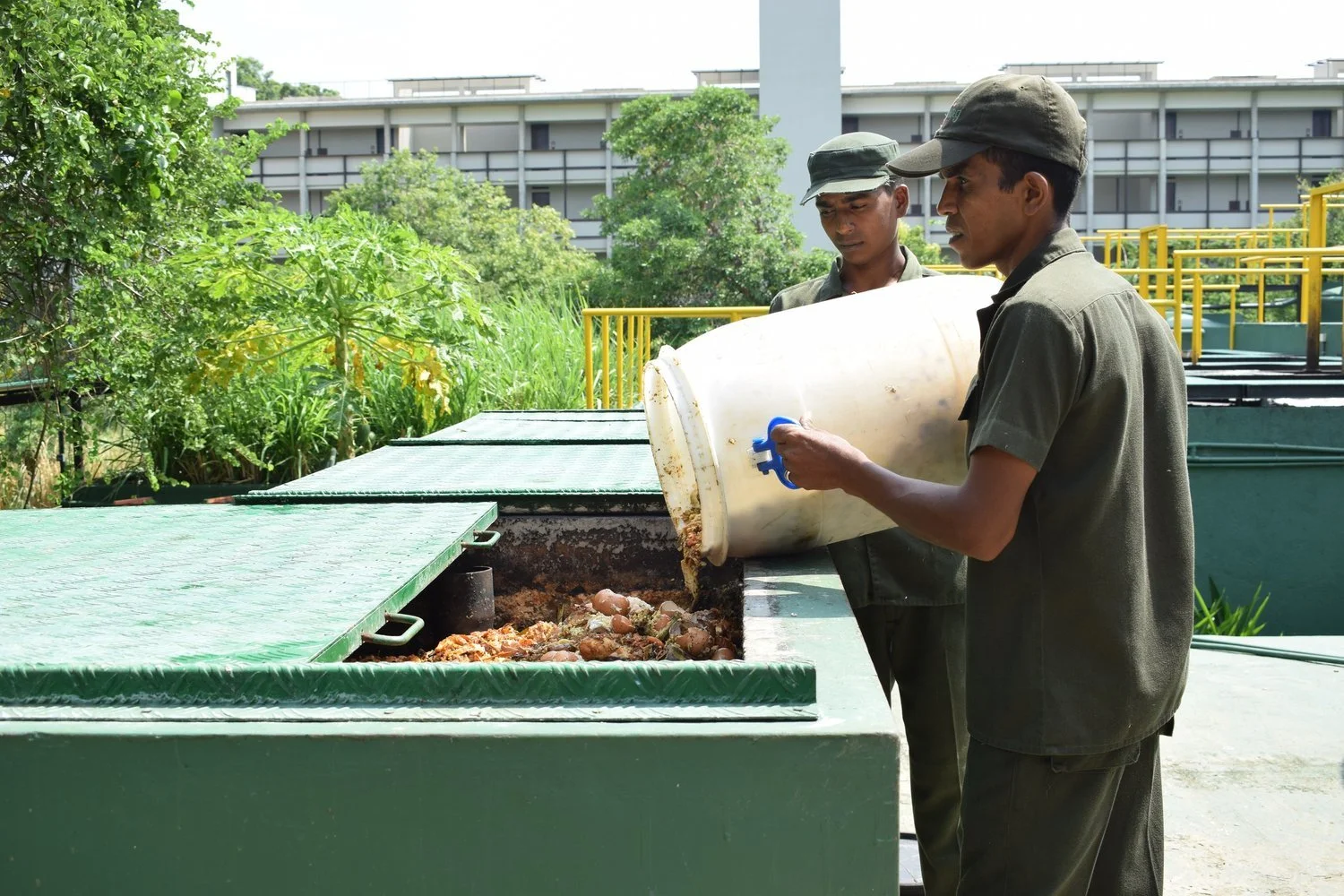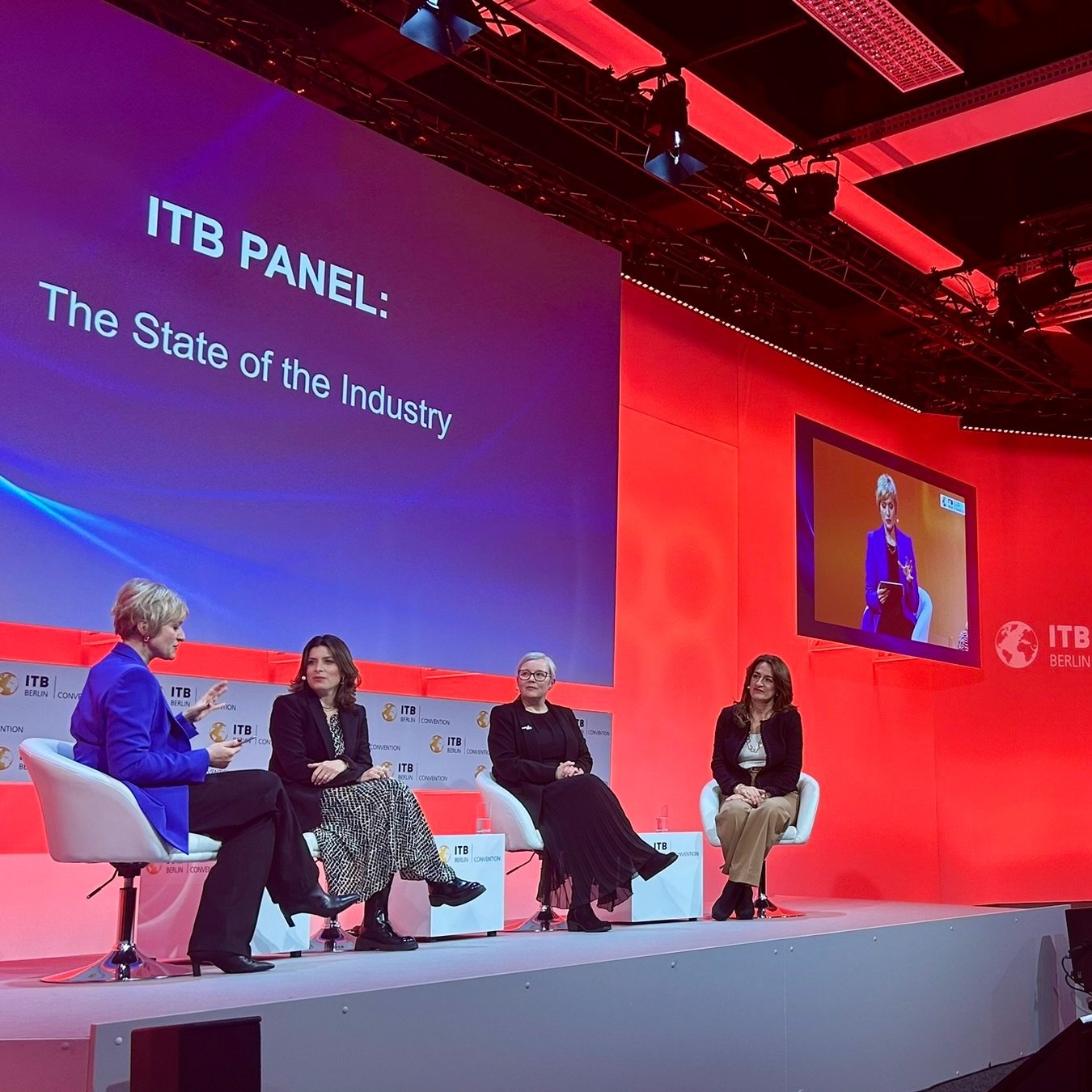Feeding Innovation: Inside Hospitality's Fight Against Food Waste
Photo by Food Waste Campaign via UNEP
This is the second part of our two-part series. In this article, we'll look into how hospitality businesses can prevent, reduce, and dispose of food waste responsibly.
In case you missed it, here is the first article on insights and examples of sustainable food sourcing and serving.
Why reducing food waste matters
A Lost Opportunity to Feed the World
On a global scale, approximately one-third of all food produced for human consumption goes to waste, yet hunger afflicts one in ten, according to the United Nations agencies.
This paradox is even more pronounced in Asia, where 375 million people grappled with hunger in 2020, a number larger than the entire population of the United States. The COVID-19 crisis has only worsened the crisis.
Reducing food waste helps lower carbon emissions.
Moral reasons aside, food waste emits methane upon decomposition, contributing to global warming. If quantified as a nation, food waste would rank third in carbon emissions, trailing only the US and China, per the World Food Programme.
It makes economic sense to reduce food waste.
The UN-Awarded food waste prevention tech and consultancy organization LightBlue Consulting shares that a hotel serving approximately 2,000 covers a day would waste the equivalent of $400,000 to $500,000 a year. In 2023, they succeeded in getting their clients to collectively save over four million U.S. dollars by implementing food waste reduction strategies.
In a similar case, Winnow, a tech-based food waste reduction company, also found great cost-saving results from its APAC hotel partners that had implemented the system for six months.
For instance, hotels earning $315,500 - $1,893,000 (or £250,000-£1,500,000) in food sales annually saw a decrease of 57.9% in annualized food waste costs (as a percent of sales), while those hotels with greater than $1,893,000 (or £1,500,000) in food sales annually saw a decrease of 52.3% in annualized food waste costs (as a percent of sales).
Source: Winnow in “Building an Understanding For Food Excess in Tourism” report by PATA
The Four-Step Framework
First, understand that reducing food waste isn't about micromanaging every ounce of food. It's about gaining insights into your operations to make smarter decisions.
Let’s now deep dive into the proven framework to prevent and reduce food waste.
1. Get your team on board by talking about the ‘why’
2. Monitor to reduce waste
3. Donate if there’s excess
4. Dispose of food responsibly
First step: Get your team onboard
According to Forth, a data and analytics company specializing in the hospitality sector, the kitchen staff and service staff play an important role in reducing food waste in hotels.
Concurring with this first crucial step, LightBlue Consulting runs a series of workshops to train the F&B teams at hotels through its proprietary Food Intel Tech (FIT). The key is to reframe the mindset — reducing food waste boosts the bottom line.
Then, providing the kitchen teams with the right tools, such as recipe and menu engineering technologies, can optimize operations, enhance cost transparency, and ensure consistent quality across recipes and menus. This strategic approach brings us closer to eliminating food waste in hotels altogether.
Next, monitor food production to prevent and reduce waste
Start with a waste audit. A good waste audit process should provide you with insights to:
Identify where and why waste is happening.
Set realistic goals for the reduction.
Select the right strategies and tools to help you achieve those goals.
1. Track, Identify, and Categorize Waste
It’s important to track waste at various stages, including food prep, cooking, serving, and post-consumption. A helpful trick is that kitchen staff can put waste in different labeled bins for better tracking results.
Then categorize waste to identify which food items or categories, and what percentages account for the waste.
At the same time, be sure to analyze purchasing practices by reviewing purchasing records to identify over-ordering or excess inventory, and evaluate storage practices to ensure proper rotation and utilization of ingredients before expiration.
Watch Lumitics’ Co-founder and CEO Rayner Loi share with Channel NewsAsia how his company is using AI to help hospitality companies like Fairmont Singapore reduce food waste by identifying where it comes from and forecasting demand.
2. Set SMART Goals
When defining goals, ensure they are SMART - Specific, Measurable, Actional, Realistic, and Timebound. Engaging all stakeholders, from management to front-line employees and suppliers, is critical when setting goals so that team members can feel ownership and accountability.
3. Take Scalable and Tactical Actions
There are no “one-size-fits-all” strategies. The actions you choose to pursue will be contingent upon your requirements, the capabilities of your team, and the technology you opt to integrate if you decide to do so.
Practice careful portion control during food preparation and plating, ensuring that portions are appropriate and minimizing excess food on plates. Kitchen staff can also creatively repurpose leftover ingredients into new dishes or specials to reduce waste while offering diverse menu options.
CASE STUDY 1: Easia Travel’s Recipe for Reducing Food Waste on its Tours
Easia Travel, a travel company offering tour services in mainland Southeast Asian countries, discovered that excessive portion sizes led to food waste complaints.
As Easia Travel does not prepare food but relies on suppliers, it engages hotels and restaurants to address the issue.
Initially met with confusion, Easia Travel conducted discussions with suppliers to raise awareness about food waste. They emphasized understanding guest preferences, such as Italians preferring one Western meal daily. Easia Travel suggested changes, like serving local jams instead of plastic-packaged ones, to reduce both food and packaging waste. They also introduced sit-down lunch experiences over packed lunches to minimize waste.
Beyond supplier discussions, Easia Travel holds monthly sustainability meetings for stakeholders. Internally, they cultivated a garden and practiced waste separation. At the time of reporting, the company’s plans included updating supplier questionnaires with sustainability questions that tackled food waste. Easia Travel's approach underscores collaboration, awareness, and practical steps toward food waste prevention and reduction.
CASE STUDY 2: Jetwing Hotels Redefines Buffet Dining to Minimize Food Waste
Jetwing Hotels employs strategic inventory management to minimize food waste and maintain quality. Local produce is ordered based on occupancy forecasts, ensuring freshness and reducing spoilage.
Menus are chef-driven, with no imported or canned foods. Buffet service is offered selectively, using live cooking stations to reduce overconsumption and minimize pre-cooked food waste.
The caveat: Controlling guest consumption proves challenging as the prevailing mindset suggests that buffet patrons, having paid for the experience, possess the autonomy to determine their own selections and portions.
Photo by Jetwings Hotels
Both case studies were drawn from PATA’s “Building an Understanding For Food Excess in Tourism” report.
SPOTLIGHT: LightBlue Consulting’s Food Intel Tech (FIT) helps restaurants cut food spending and lower carbon emissions.
Through its Hyatt Indo Cluster Project, LightBlue Consulting worked with four Bali-based Hyatt hotels to implement its Food Intel Tech (FIT) and then take The PLEDGE™ on Food Waste certification.
The PLEDGE™ on Food Waste is a Singapore-based third-party audited certification and benchmarking system articulated around 7 key pillars to help restaurants achieve zero food waste to landfill.
Over nine months, the four Hyatt hotels participating in this project collectively achieved 98,621kg of food reduction, representing 246,553kg of CO2 emissions prevented and US $340,815 savings equivalent.
Left: FIT in use by Chef Christian Martena at the CLARA Bangkok; Right: Bin diving as part of food waste prevention project with Bali-based Hyatt Hotels. Photo by LightBlue Consulting
If there’s excess, donate
Here are some great organizations that work with hospitality companies to transport excess food to those in need.
Finally, dispose of your food waste if you must, responsibly
It is imaginably difficult to be truly a zero-waste food business. If food waste is inevitable, experts recommend that restaurants and hotels do whatever they can to avoid throwing food in landfills to curb methane emissions.
Strategy 1: Composting
Composting is a great natural solution, wherein organic waste transforms into nutrient-rich soil, diverting it from landfills and curbing methane emissions.
Under the visionary founder Andrew Nixon’s leadership, the Cempedak Island team segregates waste into several bins, including food scraps, paper, and bottles, allowing for recycling and upcycling efforts.
Leftover rice is fed to livestock. The resort also uses black soldier flies for larval production to produce nutrient-rich fertilizers to feed the soil.
Left: photo by Kompasiana.com; Right: black soldier fly larvae have a voracious appetite for nitrogen-rich materials, making them effective processors of kitchen scraps. In a small composting arrangement, they may consume about one kilogram of food per day, greatly exceeding worms' decomposition rates. Left
Watch Cempedak Island’s Sustainability Manager Abuy explain how a black soldier fly larvae process works.
If you’re an urban hotel with no composting facilities, look for organizations like Zero Foodprint Asia whose SoilFeeders Program empowers its hospitality partners to transform food waste into nutrient-rich compost to support local farmers and soil regeneration efforts.
Strategy 2: Composting Anaerobic Digestion
Anaerobic digestion is the degradation of organic waste by microorganisms in an oxygen-free environment, resulting in the production of biogas and a nutrient-rich material called digestate.
Anaerobic digestion also produces biogas, which can be utilized as an energy source for heat, electricity, or transportation, to reduce dependency on fossil fuels and lowering carbon emissions.
In Sri Lanka, Jetwing Hotels uses biogas digesters at properties with sufficient space.
These digesters transform food waste into biogas through controlled microbial activity to provide an alternative to liquefied petroleum gas (LPG) for cooking in staff cafeterias or hotel kitchens. Where onsite treatment is not feasible, food waste is sent to local piggeries as animal fodder.
Biogas digester. Photo by Jetwing Hotels.
TL; DR
Food waste is a significant global issue with environmental, social, and economic consequences. It is especially prevalent in Asia where hunger affects millions despite massive food waste.
Reducing food waste not only aligns with sustainability goals as it curbs methane emissions, but also leads to substantial cost savings for hospitality businesses, with examples showcasing millions of dollars saved through the implementation of waste reduction strategies.
A four-step framework to tackle food waste:
Get the team on board by emphasizing the importance and benefits of waste reduction.
Monitor waste production and implement strategies based on data insights.
Donate excess food to organizations like Second Harvest Asia and Scholars of Sustenance Thailand.
Employ responsible disposal methods such as composting or anaerobic digestion to minimize environmental impact.
Case studies illustrate successful approaches, including portion control, menu optimization, and strategic inventory management, to minimize waste in hospitality settings.
Companies such as LightBlue Consulting’s Food Intel Tech (FIT) and Lumitics are on a mission to help hotels cut down food waste and carbon emissions using AI.
Responsible disposal methods include composting and anaerobic digestion, with examples like Cempedak Island's waste segregation and Jetwing Hotels' use of biogas digesters.
Urban hotels without composting facilities can explore options like Zero Foodprint Asia's SoilFeeders Program to transform food waste into compost, supporting local farmers and soil regeneration efforts.



